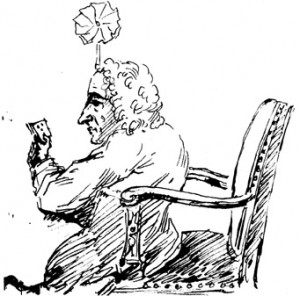Critics on Criticism: Dryden and Pope on the Evils of Hating, Loving Parts
 Apparently something about the Restoration, after all the Charleses and Jameses and Cromwells and who is Catholic and who is Anglican or Puritan, got poets to thinking about the whole versus the part, w/r/t criticism. Thus John Dryden, who was politically moderate but eventually found he had some inclinations toward Rome, on critics who “think this or that expression in Homer, Virgil, Tasso, or Milton’s Paradise to be far too strained”:
Apparently something about the Restoration, after all the Charleses and Jameses and Cromwells and who is Catholic and who is Anglican or Puritan, got poets to thinking about the whole versus the part, w/r/t criticism. Thus John Dryden, who was politically moderate but eventually found he had some inclinations toward Rome, on critics who “think this or that expression in Homer, Virgil, Tasso, or Milton’s Paradise to be far too strained”:
Tis true there are limits to be set betwixt the boldness and rashness of a poet; but he must understand those limits who pretends to judge as well as he who undertakes to write: and he who has no liking to the whole ought, in reason, to be excluded from censuring of the parts. (from “The Author’s Apology for Heroic Poetry and Heroic License,” 1677)
This seems a good rule. I perhaps unfashionably quite enjoy reading good criticism for its own sake, and I believe a person can display a purely critical genius, though their work ought to follow Wilde’s dictum of being a creative act in its own right. I think, here, that Dryden makes a key distinction. He is taking to task critics who profess no taste for any muscular poetry, for the “the hardest metaphors and the strongest hyperboles,” and who then critique individual works of heroic verse that by definition display that muscularity, hardness, and strength.
